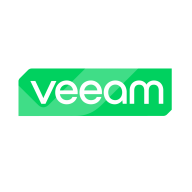

Dell RecoverPoint for Virtual Machines and Veeam Data Platform are competitors in the data protection and recovery sector. Veeam Data Platform appears to have the upper hand due to its comprehensive feature set and reliable customer support.
Features: Dell RecoverPoint for Virtual Machines provides continuous data protection, site-to-site sync capabilities, and real-time data protection that ensures swift recovery processes. Veeam Data Platform offers integrated backup, replication, a robust management interface, and features like instant VM recovery and seamless integration with VMware, positioning it as a feature-rich solution.
Room for Improvement: Dell RecoverPoint for Virtual Machines could improve its user interface and require less technical support for setup. It may also benefit from broader integration capabilities. Veeam Data Platform could enhance its reporting capabilities, improve pricing models for more flexibility, and expand its cloud backup features.
Ease of Deployment and Customer Service: Dell RecoverPoint for Virtual Machines offers a straightforward setup, although it might be challenging without technical support. Veeam Data Platform is easier to deploy, provides excellent technical support, and simplifies backup management, giving it an advantage in implementation and support.
Pricing and ROI: Dell RecoverPoint for Virtual Machines may have higher initial setup costs which could deter budget-conscious buyers. However, the efficiency of Veeam Data Platform potentially offsets its setup costs, offering a strong ROI and making it a more economically sensible choice.
| Product | Mindshare (%) |
|---|---|
| Veeam Data Platform | 12.8% |
| Dell RecoverPoint for Virtual Machines | 4.9% |
| Other | 82.3% |

| Company Size | Count |
|---|---|
| Small Business | 5 |
| Midsize Enterprise | 4 |
| Large Enterprise | 6 |
| Company Size | Count |
|---|---|
| Small Business | 218 |
| Midsize Enterprise | 99 |
| Large Enterprise | 139 |
Dell RecoverPoint for Virtual Machines enables quick recovery of VMware virtual machines and allows you to efficiently test, manage and orchestrate operational backup and disaster recovery operations.
With tight integration with VMware, RecoverPoint for Virtual Machines is storage and application agnostic, with built-in automation accessible via VMware vSphere web client plug-in.
When cloud becomes a vital part of your disaster recovery strategy, RecoverPoint for Virtual Machines is also web-enabled, providing efficient replication to AWS and VMware Cloud on AWS.
RecoverPoint for Virtual Machines is available as part of Dell Data Protection Suite.
Veeam Data Platform is a global leader in data resilience, offering protection and recovery solutions that keep businesses operational. It integrates secure backups with intelligent data insights, providing robust defense against cyber threats and ensuring data remains recoverable and adaptable.
Engineered to address modern cybersecurity challenges, Veeam Data Platform delivers reliable protection with orchestrated and verifiable recovery processes. Its platform extends beyond traditional backup, providing frictionless operations and ensuring that data is secure and always available. With features like built-in defenses, cleanroom recovery validation, and a streamlined software appliance, organizations maintain business continuity without disruption. As a trusted choice, Veeam empowers firms to effectively manage data across virtual and physical environments, fostering resilience in the face of adversity.
What are the key features of Veeam Data Platform?In many industries, Veeam Data Platform is integral for robust data management strategies. It is widely used for backup, replication, and data protection across both virtual and physical environments. Organizations value its support for VMs, file-level recovery, and efficient disaster recovery scenarios. Additionally, the platform's capability to integrate with cloud and on-premise systems ensures efficient centralized backup management, meeting the diverse demands of large-scale infrastructures.
We monitor all Disaster Recovery (DR) Software reviews to prevent fraudulent reviews and keep review quality high. We do not post reviews by company employees or direct competitors. We validate each review for authenticity via cross-reference with LinkedIn, and personal follow-up with the reviewer when necessary.